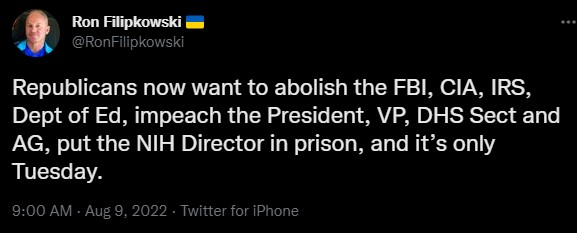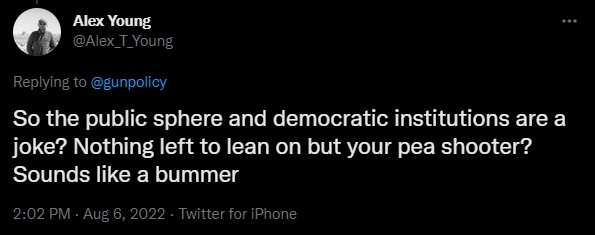“It’s important to lead your life in such a way that when you’re gunned down in public by an anonymous hitman on a New York City street the country at large doesn’t react like the Ewoks watching the second Death Star explode.”
So said an Instagram post that I recently came across.
Translation: It’s important to live your life so that the majority of people approve of you.
This sentiment makes no logical sense. What is popular versus unpopular has nothing to do with what is right versus wrong. A person could live their life in a way that is 100% right and be disliked by everyone (and therefore have their death celebrated in the way that the author of the post describes), and a person could live their life in a way that is 100% wrong and be universally liked. What the country at large thinks has nothing to do with what is actually true. The majority of the population could have correct ideas about right and wrong, or they could have completely wrong ones.
What the author of the post is saying is that if a person is unpopular, then they must be bad. And that is not only logically incorrect, but also deeply hurtful to every person who is, or has ever been, unpopular. This is a category that includes myself, as an autistic person who has always had difficulty making friends and fitting in with my peers. The author of the post is saying that if a person’s death is celebrated, then that reflects negatively on the person who died. When in reality, it reflects negatively on the people doing the celebrating.
This post is also deeply hurtful to Brian Thompson, the health insurance CEO who was murdered, as well as anyone who loved or cared about him, because the post implies that he deserved to be murdered. It implies that he, and not his murderer, is responsible for his death. It implies that the public’s celebration of his death reflects negatively on Thompson, when in reality, it reflects negatively on the people who are celebrating.
The post should read: “It’s important to lead your life in such a way that you don’t murder innocent people.” Or: “It’s important to lead your life in such a way that you don’t sadistically and cruelly celebrate the deaths of innocent people.” Or even better: “It’s important to lead your life in such a way that you don’t make idiotic, mean-spirited posts that are both hurtful and logically incorrect.”
Someone left the following comment on the post: “It’s Christmas season, so what’s a better way to celebrate that to scrooge a bunch of rich people and show them that if they continue to live as they are, people will celebrate their deaths?”
I don’t know exactly what it means to “scrooge” someone (I know who Scrooge is, but I’ve never heard his name used as a verb). Regardless, this comment has the same logical and moral problems as the original post. It implies, erroneously, that the public’s celebration of a person’s death reflects negatively on the person who died, when in reality it reflects negatively on the people celebrating. And it condemns rich people in their entirety, which is cruel, mean-spirited, and bigoted because whether a person is rich or poor has nothing to do with whether they are good or bad.
So yeah, great job by both the original poster and the commenter… NOT. If you were attempting to be nasty, logically incoherent, and classist bullies, then congratulations! You succeeded.




